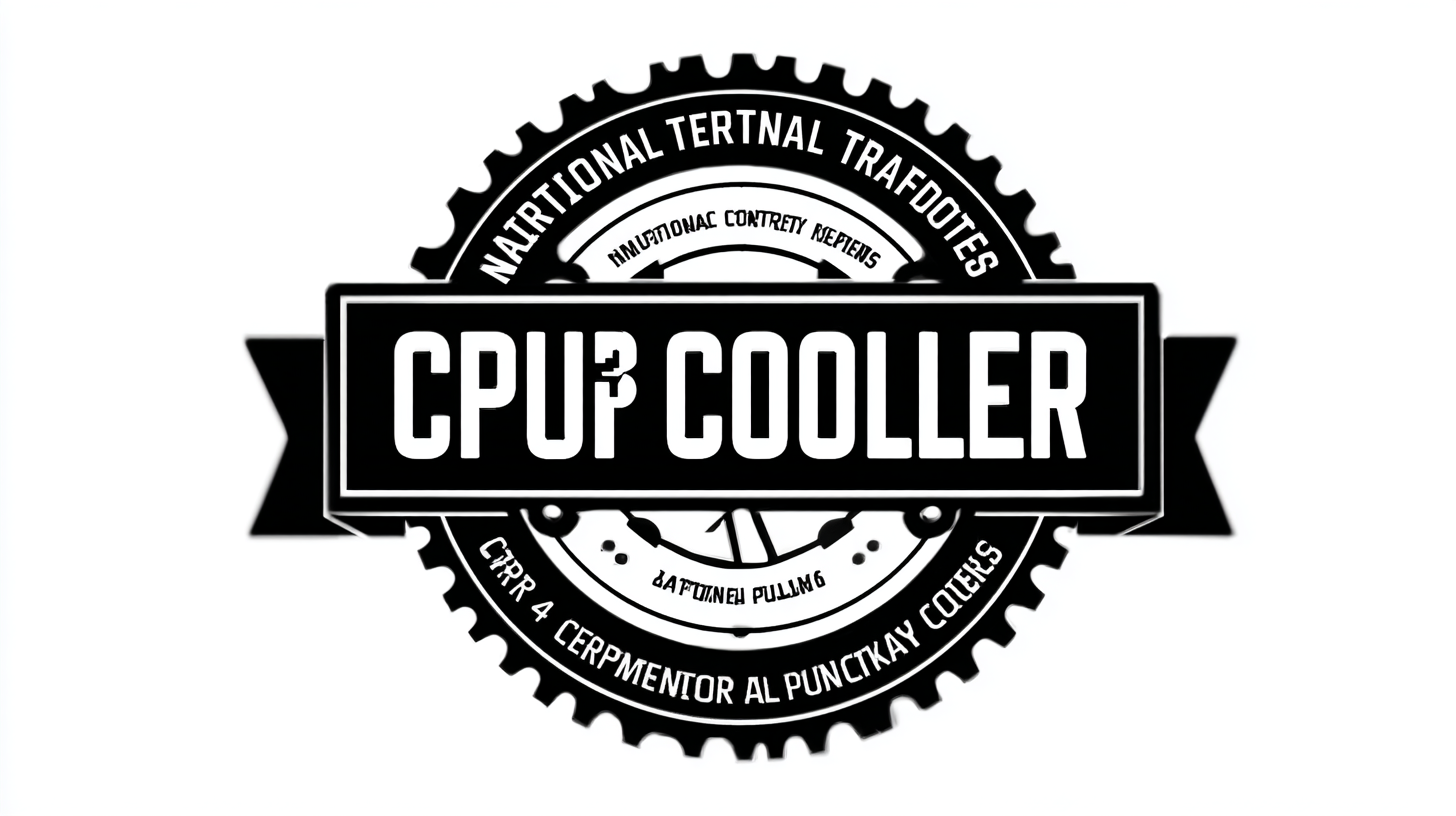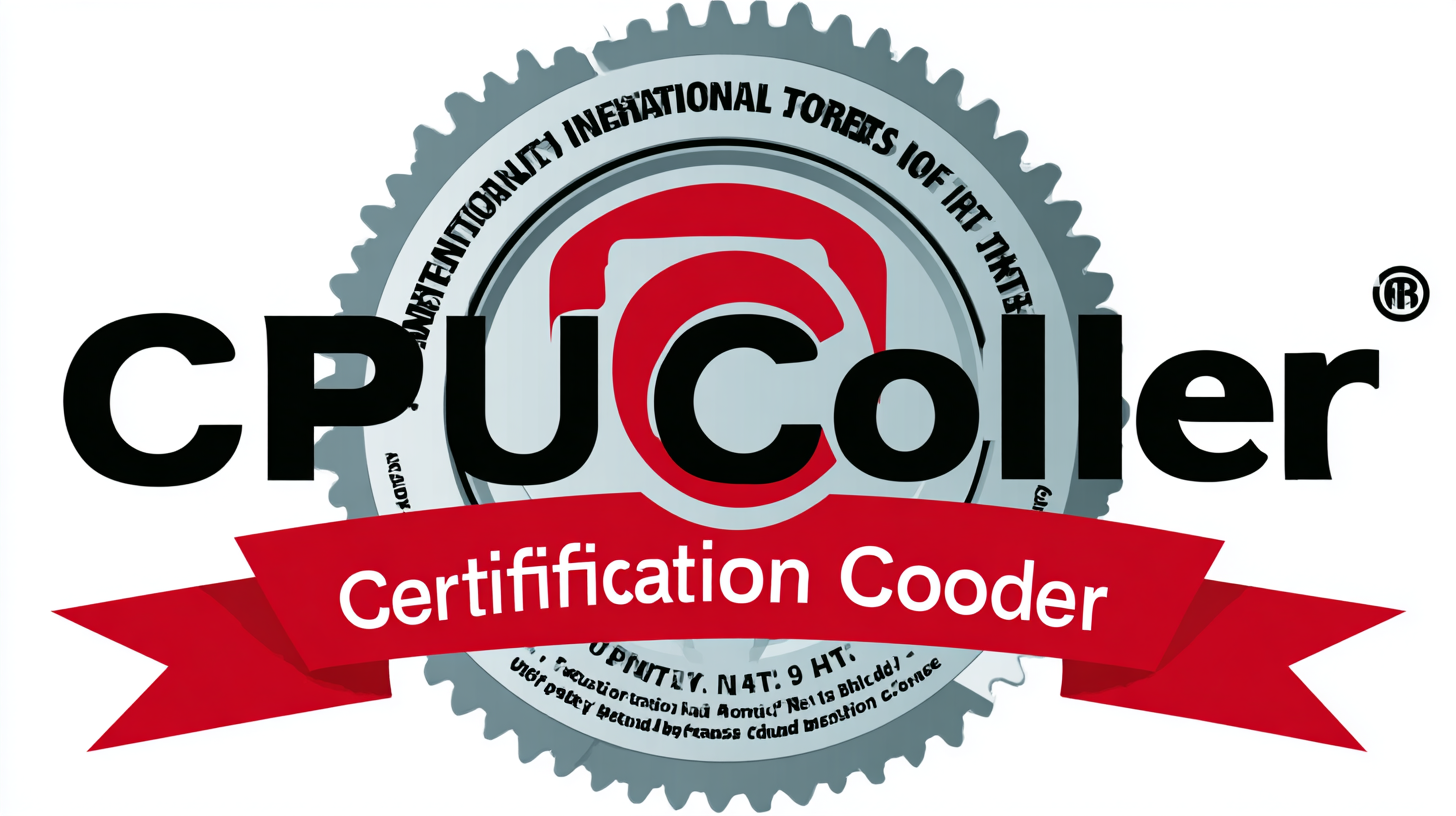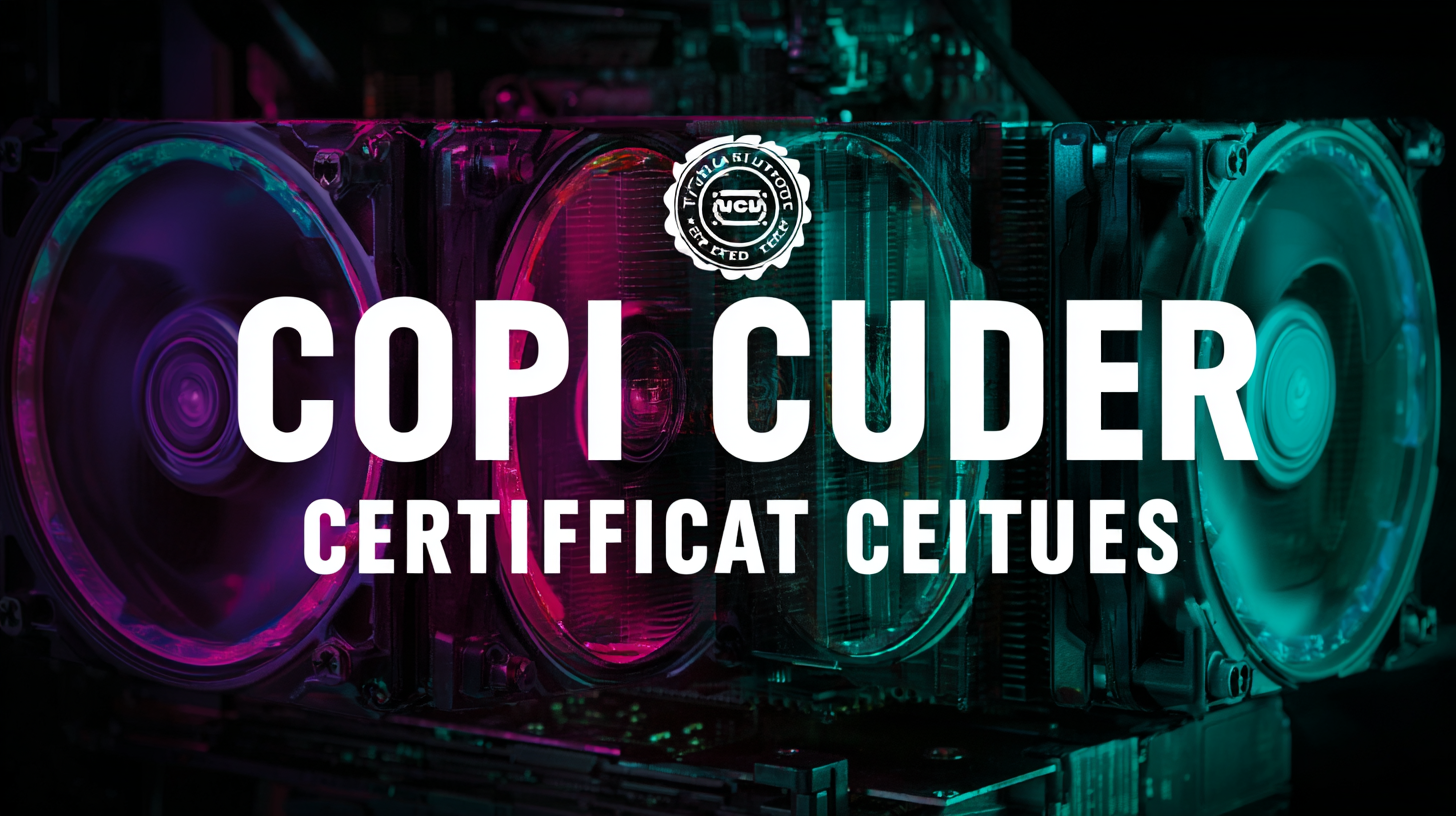Leave Your Message
- Phone
- E-mail
- Whatsapp


In the expanding world of technology, the demand for efficient thermal management solutions has led to a surge in the CPU cooler market, which is projected to reach USD 1.2 billion by 2027, growing at a CAGR of 5.6% from 2020 to 2027 (MarketsandMarkets). As companies increasingly source CPU coolers from international manufacturers, understanding the various certifications and regulations becomes crucial. Compliance with ISO standards, CE marking, and RoHS directives not only ensures the reliability and safety of the products but also facilitates smoother trade processes. Navigating these certifications can be a daunting task for sourcing professionals, particularly in a landscape where low-cost alternatives often compromise on quality. This blog aims to provide a comprehensive sourcing guide that highlights the importance of certification in the selection of CPU coolers, ensuring that businesses can make informed decisions while optimizing their procurement strategies.

When sourcing CPU coolers, the significance of
after-sales service cannot be overstated.
In a rapidly evolving tech landscape, ensuring that your cooling solutions maintain optimal performance is crucial
for both individual users and businesses.
After-sales service encompasses a broad spectrum of support, including warranties, technical assistance,
and replacement parts availability. Quality customer service can significantly impact your experience,
offering peace of mind that help is just a call or message away.
Moreover, understanding the nuances of after-sales service can guide buyers in making informed decisions
about their CPU cooler purchases. A supplier that invests in
robust after-sales support demonstrates a commitment
to quality and customer satisfaction. This is especially important given the technical nature of CPU coolers,
where issues may arise post-purchase. Buyers should consider not only the
performance and price
of the cooler but also the reliability of the manufacturer's support network, ensuring that they receive timely
assistance to address any potential problems that may hamper their cooling system's efficiency.
When it comes to maintaining CPU coolers, understanding the key factors that affect repair costs can significantly impact both operational efficiency and budget planning. One primary consideration is the type of cooler—air or liquid. Air coolers, while generally less expensive to repair, may require more frequent maintenance due to dust accumulation and fan failures. Conversely, liquid coolers, though they can offer superior cooling performance, come with a higher repair cost, particularly if leaks occur or pump failures arise.
Another critical factor influencing maintenance expenses is the availability of replacement parts. High-quality or proprietary components may cost more, but they often yield better long-term reliability. It’s vital to analyze the historical performance of your cooling solution; older models might face inflated repair costs due to the scarcity of parts or declining availability of skilled technicians. Lastly, regular preventative maintenance can mitigate sudden repair needs and associated costs. Establishing a routine maintenance schedule and investing in quality components will ensure that your CPU coolers remain efficient, ultimately saving money in the long run.
When sourcing CPU coolers, understanding trade certifications is crucial for ensuring product quality and reliability. Certifications such as ISO 9001 or CE mark indicate that a manufacturer adheres to international quality management standards, thereby enhancing consumer confidence. These certifications reflect not only the manufacturing process but also the materials used, culminating in a product that meets rigorous safety and performance benchmarks.
Moreover, specific certifications pertinent to electronics help buyers assess the thermal performance and electrical safety of CPU coolers. For instance, certifications like RoHS ensure that the product is free from hazardous substances, which is essential for both consumer safety and environmental protection. By evaluating these certifications during the sourcing process, businesses can mitigate risks associated with substandard products and focus on suppliers that prioritize excellence in both production and compliance. Adopting a comprehensive approach to trade certifications ultimately leads to better sourcing decisions and higher satisfaction among end users.
| Certification Type | Description | Importance | Regions Recognized |
|---|---|---|---|
| CE Marking | Indicates compliance with EU safety, health, and environmental protection standards. | Essential for selling products in the European market. | European Union |
| UL Certification | A safety certification that ensures the product meets rigorous safety standards. | Critical for consumer trust and market acceptance in North America. | United States, Canada |
| ROHS Compliance | Restriction of Hazardous Substances directive limiting the use of specific hazardous materials. | Mandatory for electronics sold in the EU. | European Union |
| ISO 9001 | International standard for quality management systems. | Enhances customer satisfaction and operational efficiency. | Worldwide |
| FCC Certification | Ensures that electronic devices meet electromagnetic interference standards. | Required for electronics sold in the US. | United States |
| Energy Star | Labeling program that identifies energy-efficient products. | Promotes energy efficiency and cost savings for consumers. | North America, Europe |
In the competitive landscape of CPU cooler sourcing, efficient strategies are essential for navigating international trade certifications. The global data center CPU market is on a robust trajectory, projected to reach USD 48.9 billion by 2033, with a compound annual growth rate (CAGR) of 15.2%. This growth signifies an increasing demand for high-performance cooling solutions that can meet the stringent requirements of modern computing environments. As businesses strive to tap into this expanding market, understanding the certification processes for imports and exports can streamline operations and enhance product sourcing effectiveness.
To thrive in a dynamic market, manufacturers and suppliers must stay updated on certifications and regulatory standards specific to thermal management products. This knowledge not only aids in compliance but also builds trust with end-users, a crucial factor for success. With innovations such as the Arm-based Axion chip driving cloud computing efficiencies, sourcing CPU coolers capable of supporting enhanced performance requirements becomes imperative. Companies that adopt strategic sourcing approaches, focusing on both product quality and regulatory adherence, will position themselves competitively in the evolving technology landscape.

When sourcing CPU coolers, the reliability of your suppliers is paramount, particularly in the context of after-sales support and repair services. A trustworthy supplier not only delivers quality products but also ensures that customers receive the support needed after a purchase. This includes providing readily available technical assistance and efficient handling of warranty claims. In an industry where performance and longevity are critical, strong after-sales support can significantly enhance customer satisfaction and brand loyalty.

Moreover, a supplier's commitment to repair services can be a decisive factor in sourcing decisions. Suppliers that offer comprehensive repair services demonstrate their confidence in the durability of their products and their dedication to customer service. This can include timely repairs, access to spare parts, and responsive customer service channels. By prioritizing suppliers with a solid reputation for reliability in after-sales support, businesses can create a seamless experience for end-users, fostering trust and encouraging repeat purchases in a competitive market.
